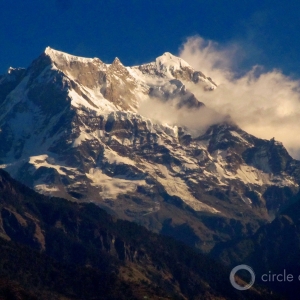The Stream, September 27, 2019: U.S. EPA Alleges California is Violating Clean Water Laws
The Global Rundown
The U.S. Environmental Protection Agency accuses California of allowing human waste from the homeless population to contaminate waterways. Baltimore, Maryland, moves toward a tiered billing system that will charge low-income residents less. Water levels revive in two drought-stricken Alaska communities. A new study warns that dwindling water supplies may affect operations at power plants in Asia. A flash drought strikes Washington D.C.
“There are no needles washing out to the Bay or Ocean from our sewer system, and there is no relationship between homelessness and water quality in San Francisco.” –London Breed, mayor of San Francisco, in reference to an accusation by the U.S. EPA that California was violating clean water laws by allowing human waste from the homeless population to enter waterways. The EPA letter is the latest move in a feud between the state and the federal government. Reuters
Latest WaterNews from Circle of Blue
Mountain Regions, ‘Taking the Heat,’ Face Growing Hazards As Ice Melts, UN Climate Panel Warns — IPCC special report describes mounting disaster risks that connect mountains and polar regions to oceans.
In Australia, Echoes of Past, Glimpses of Future As Country Braces for Hot, Dry Summer — A record-breaking drought is pushing rural communities in New South Wales and Queensland to the breaking point.
By The Numbers
60 Days this year in Washington D.C. that have been over 90 degrees, the third-highest on record. The high temperatures, along with below-average rainfall, have sent the region into a flash drought. The Washington Post
Science, Studies, and Reports
A changing climate and shrinking water resources could lead to power shortages in developing Asian countries, including China and India, according to a study published in the journal Energy and Environment Science. Coal, nuclear, and natural gas power plants all require water for cooling, meaning worsening water shortages could jeopardize power supplies. Business Standard
On the Radar
Baltimore, Maryland, is working toward a tiered water billing system that will charge lower-income residents less than high-income residents. On Thursday, the City Council’s Taxation, Finance and Economic Development Committee approved the Water Accountability and Equity Act, which will cap water bills at 1 percent of the annual pay for the city’s poorest residents. The bill will be reviewed by the full council next month. The Baltimore Sun
In context: Baltimore City Council to Introduce Water Affordability Package in 2018.
Price of Water 2019: Even Without Federal Infrastructure Deal, Cities Continue to Invest.
Recent rainfall is restoring water supplies in Nanwalek and Seldovia, two drought-stricken Alaskan communities, officials say. At the peak of the region’s recent drought, Nanwalek was forced to cut water supply for 12 hours each day and had to rely on water brought by barges. AP
Kayla Ritter is a recent graduate of Michigan State University, where she studied International Relations and Teaching English to Speakers of Other Languages. She is currently based in Manton, Michigan. Kayla enjoys running, writing, and traveling. Contact Kayla Ritter






Leave a Reply
Want to join the discussion?Feel free to contribute!